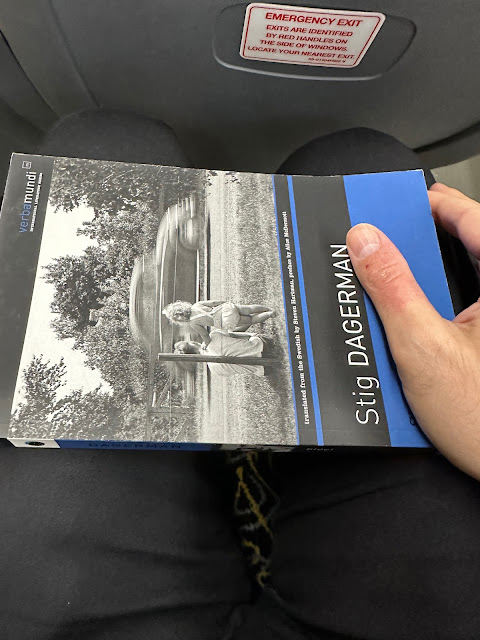Let’s look backward and start with the mid-1960s to early ’70s. The nation was bitterly divided over civil rights, the “sexual revolution” and an increasingly unpopular war in Southeast Asia.
The just and peaceful civil-rights protests of the 1950s and early ’60s were often met with state-sanctioned violence. Then Harlem exploded in 1964, followed by a riot in Philadelphia. Watts went up in flames in 1965; Chicago, Cleveland and San Francisco the next year. A total of 163 cities—including Atlanta, Boston, Buffalo, Cincinnati, Detroit, Milwaukee, Newark, N.J., New York and Portland, Ore.—suffered widespread violence in the “Long Hot Summer” of 1967. On April 4, 1968, Martin Luther King Jr. was assassinated in Memphis, Tenn. Riots broke out in more than 130 American cities, with 47 killed in the ensuing violence. Two months later Robert Kennedy was assassinated in Los Angeles.
That same year the nation’s most prominent segregationist, George Wallace, running for president as an independent, won five states in the Deep South. In 1972 he came in third for the Democratic nomination, 1.8 points behind the winner in total primary vote.
Beginning in 1965, the country was rocked by demonstrations over the Vietnam War, many of them student-led. In some instances, governors sent in the National Guard to restore order. After guardsmen killed four students in 1970 at Ohio’s Kent State, protests broke out on 350 campuses, involving an estimated two million people. Thirty-five thousand antiwar protesters assaulted the Pentagon in October 1967. An estimated 10,000 tried shutting down the 1968 Democratic National Convention in Chicago. Four years later, thousands tried the same at the GOP convention in Miami Beach. The U.S. experienced more than 2,500 domestic bombings in 18 months in 1971-72.
Two presidents were driven from office during this period. Lyndon B. Johnson opted against seeking re-election in 1968 because of the war. Richard Nixon, facing impeachment over Watergate, resigned in 1974.
In the early 1930s, 1 in 4 Americans was unemployed. Populism emerged on both ends of the spectrum. On the left, Huey Long, proclaimed “every man a king,” threatened confiscation of wealth, and preached class hatred until he was assassinated in 1935. On the right, Father Charles Coughlin, the “Radio Priest,” blamed the Depression on bankers and Jews in nationwide broadcasts from Detroit. Journalist Eric Sevareid recalled that in 1933 “every day the headlines spoke of riots, of millions thrown out of work, of mass migrations by the desperate.” Historian Wendy L. Wall describes the late 1930s as “marked by sit-down strikes, violent repression of workers, and attacks by vigilante groups on Jews, Catholics, racial minorities, and leftists.”
The Gilded Age is often overlooked as a time of division, but Republicans and Democrats hated each other. They were still fighting the Civil War by political means. President Ulysses S. Grant’s 1872 re-election was followed by five consecutive presidential contests in which no winner received a popular-vote majority. Less than 1 percentage point separated the two candidates in three elections. In two of the five races, the winning candidate failed to earn a plurality of popular vote because the black Republican vote was suppressed by violence hard for modern minds to grasp.
The most notorious of these Gilded Age elections was 1876. Democrat Samuel Tilden led Republican Rutherford Hayes by 252,666 votes nationwide, but disputes about the Florida, Louisiana, and South Carolina results were settled on March 2, 1877, by a special commission that awarded their electoral votes to Hayes. He was inaugurated two days later and, in return for a meaningless pledge by the South to protect black rights, he withdrew the remaining federal troops from the region. The Electoral College count was 185-184.
From 1873 until 1897, Republicans held the White House and the Senate and House for four years; Democrats for two years. That left 18 years of divided government. When Democrats flipped 92 seats to win the House in 1874 for the first time in 18 years, it was part of what historian Michael Perman calls “The Return of the Bourbons” as 56 former Confederates, including the former vice president of the Confederacy, were elected to Congress from Southern and border states.
In the Gilded Age, it was routine for the House majority of either party to phony up a challenge to a member of the opposition who’d won by a few votes and toss him out, no matter how flimsy the evidence. This happened 62 times between 1874 and 1904. After winning re-election in 1882 by eight votes, Rep. William McKinley of Ohio was expelled by the Democratic majority.
This constant abuse of the House minority by the majority helped lead each party to take extreme measures. In 1888 Republicans won the White House with Benjamin Harrison and held the Senate by one seat and the House by four, 164-160 with one vacancy. If more than four Republican representatives were absent during a floor vote, House Democrats would demand a roll call and refuse to answer when their names were called. The measure would fail for lack of a quorum. The Democrats’ “disappearing quorum” kept the House from acting for months.
Finally, on Jan. 29, 1890, Speaker Thomas Reed had enough. He brought up an election challenge to a West Virginia Democrat who’d been certified the victor. The Republican had led by three votes until the Democratic governor “interpreted” one precinct’s report of two Democratic votes as 12, making the Democrat the winner by seven.













